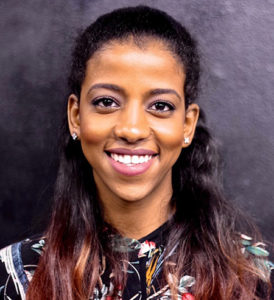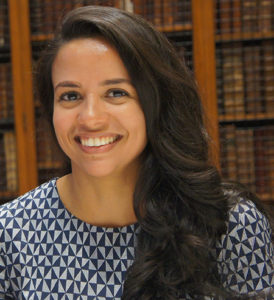Trust must be rebuilt within BAME communities if information gaps are to be bridged, say Rooah Omer, Shruti Patel, and Danielle Solomon
The covid-19 pandemic has shone a light on the health and social inequalities that have historically plagued black and minority ethnic (BAME) groups in the UK. The reasons for this are many, however there are numerous examples of ongoing patterns of miscommunication, misinformation, and disinformation that have created an information gap among these groups. This acts as a key factor in differential health seeking behaviour, experiences of healthcare, and ultimately health outcomes. These are all exacerbated by a historical context in which people from BAME groups have experienced greater levels of socioeconomic disadvantage, been ignored or abused by medical science, and received poorer quality of care from the healthcare system.
As we move on to the next phase of the pandemic, incorporating the lessons we have learnt so far will be essential in preventing and managing the effects of a second wave of covid-19 on BAME groups. Using a more localised approach to outbreak management, which works in partnership with local BAME networks, would allow us to deliver an effective, culturally competent campaign that bridges information gaps. The success of these approaches is entirely dependent on the trust of local populations—particularly when it comes to systems that rely on the individual to self-refer, such as the test and trace system. Disparities in information provision are complex, however, and it is vital to approach any solution with an understanding of the social, political, and structural drivers of this phenomenon.
UK policy makers have relied on behavioural science to determine communication strategies around the covid-19 response. However, behavioural science has tended to overlook the role of cultural differences in how people make decisions and navigate choice architecture. BAME groups are not a homogenous monolith, and if we want to continue to apply behavioural science to inform the covid-19 response, then we need to ensure that behavioural insights generated from within BAME communities are included.
While digital communications have helped efficiently disseminate health information and guidance during the pandemic, people from BAME groups are more likely to be digitally excluded. Reasons for this include financial barriers to WiFi, a lack of access to data or the devices needed to go online, and cultural and religious practices. Difficulties with literacy, language, or digital skills also act as barriers to navigating online information.
The community and voluntary sector have stepped in to produce translated audio, video, and printed materials and have supported people in applying guidance to their own contexts. It is essential that any future communication strategies aimed at BAME groups build on the knowledge of these grassroots organisations. This should include adopting more culturally specific, non-digital, and translated methods that reach people through their trusted channels.
Misinformation and conspiracy theories about covid-19 have been widespread, and disenfranchised communities are more susceptible to these. These false messages often feed into existing mistrust of authoritative bodies, which have been planted by lived experience of both overt and subtle racism.
Furthermore, we need to acknowledge the historic backdrop of medical experimentation on BAME groups, which provides fertile breeding ground for misinformation to spread within BAME communities. Unauthorised drug trials, surgery performed without consent, and other forms of medical abuse have taken place throughout Western history. It is easy to see how conspiracy theories are more likely to gain traction when viewed through the lens of history, such as a false video that went viral about the government “coming for” black participants in covid vaccine trials, which had already led to fatalities. This context, and people’s fears of being “singled out” for medical experiments, must be acknowledged and addressed when communicating why those at increased risk of mortality are being considered for priority access to novel covid-19 treatments.
Racism and discrimination against BAME groups in healthcare is not, however, confined to the annals of history. Higher maternal mortality rates, poorer experiences of cancer care, and barriers to accessing healthcare still persist in the modern day NHS. BAME communities are underrepresented in published literature, and have been insufficiently targeted in research prior to covid-19—an oversight that is likely to further exacerbate disparities in the pandemic response. The most recent wave of recruitment to the NHS covid-19 vaccine research registry has seen only 6% of participants belonging to BAME groups. If we can rebuild trust within BAME communities, it will lead to better outcomes in the uptake of testing, inclusion in medical research, and in the long run uptake of any covid-19 vaccine.
Racial health inequality has been a facet of healthcare throughout British history, and it is not surprising that the covid-19 pandemic has exacerbated existing disparities. Preventing further harm to people from BAME communities during this crisis will require a detailed understanding of the complex range of factors that contribute to poorer health outcomes. In tackling one of these factors—unequal access to health information—it is important that we acknowledge and understand the structural causes. The urgency of the situation also means that it is imperative we use the community links that already exist with many local organisations to ensure that interventions are both appropriate and effective.
 Rooah Omer is a specialist registrar in public health medicine, currently working in health protection in London. Twitter: @rooah_omer
Rooah Omer is a specialist registrar in public health medicine, currently working in health protection in London. Twitter: @rooah_omer
Competing interests: None declared.
Shruti Patel is a specialist registrar in public health medicine, currently working in the Kent health protection team. She also works as a paediatric doctor. Twitter @shruti2711
Competing interests: None declared.
 Danielle Solomon is a specialist registrar in public health medicine and a Wellcome Trust clinical PhD fellow at the Institute for Global Health, University College London (UCL). @df_solomon
Danielle Solomon is a specialist registrar in public health medicine and a Wellcome Trust clinical PhD fellow at the Institute for Global Health, University College London (UCL). @df_solomon
Competing interests: None declared.

